I’ve long since appreciated the value of good quality, subject specific CPD and in a climate where being out of school can be a challenge; events like @TMEnglishIcons are always going to be a winner. I’m (mostly) happy to get up at 6am on a Saturday and hop on a train, because I know that what I personally gain from events such as these is always worthwhile. Today was no different.
I was particularly looking forward to hearing the keynotes and they did not disappoint. The day started energetically with Dr Arlene Holmes-Henderson @DrArleneHH discussing The Breadth and Depth of Classics, encouraging us to look beyond the classic staples of epic poetry and explore how we might use Classics to challenge pupils. We were faced with a strong argument and some excellent examples, such as the events at Vindolanda, which could be used as hooks to develop in to creative writing pieces or speaking and listening tasks to name but a few. I’ve already started planning a unit to engage and enthral a particular group, using the ‘mystery of the shoes’, which was a fascinating starting point.
I was looking forward to hearing about the ‘Advocating Classics Education Project’ and the opportunities that are available to schools, including funding to train and teach Latin and Classics, and the many resources which are widely available to support this. Lots of research pointers for me to take away and explore and I’m hoping to contact my regional hub in the coming weeks. Particularly appealing to me was the data from Anna Hunt regarding the positive overall outcomes for boys and SEN pupils in reading attainment; this is again, is something that I’m looking forward to exploring further. Research also showed that the greatest improvements when teaching Latin were made by those originally excluded from learning Latin, and this is something which really resonated with me. It also provided a vein of understanding which underpinned each of the presentations, the firm belief that we should always provide variety and challenge to our pupils, never ‘dumb down’, rather set high expectations and support pupils to achieve them.
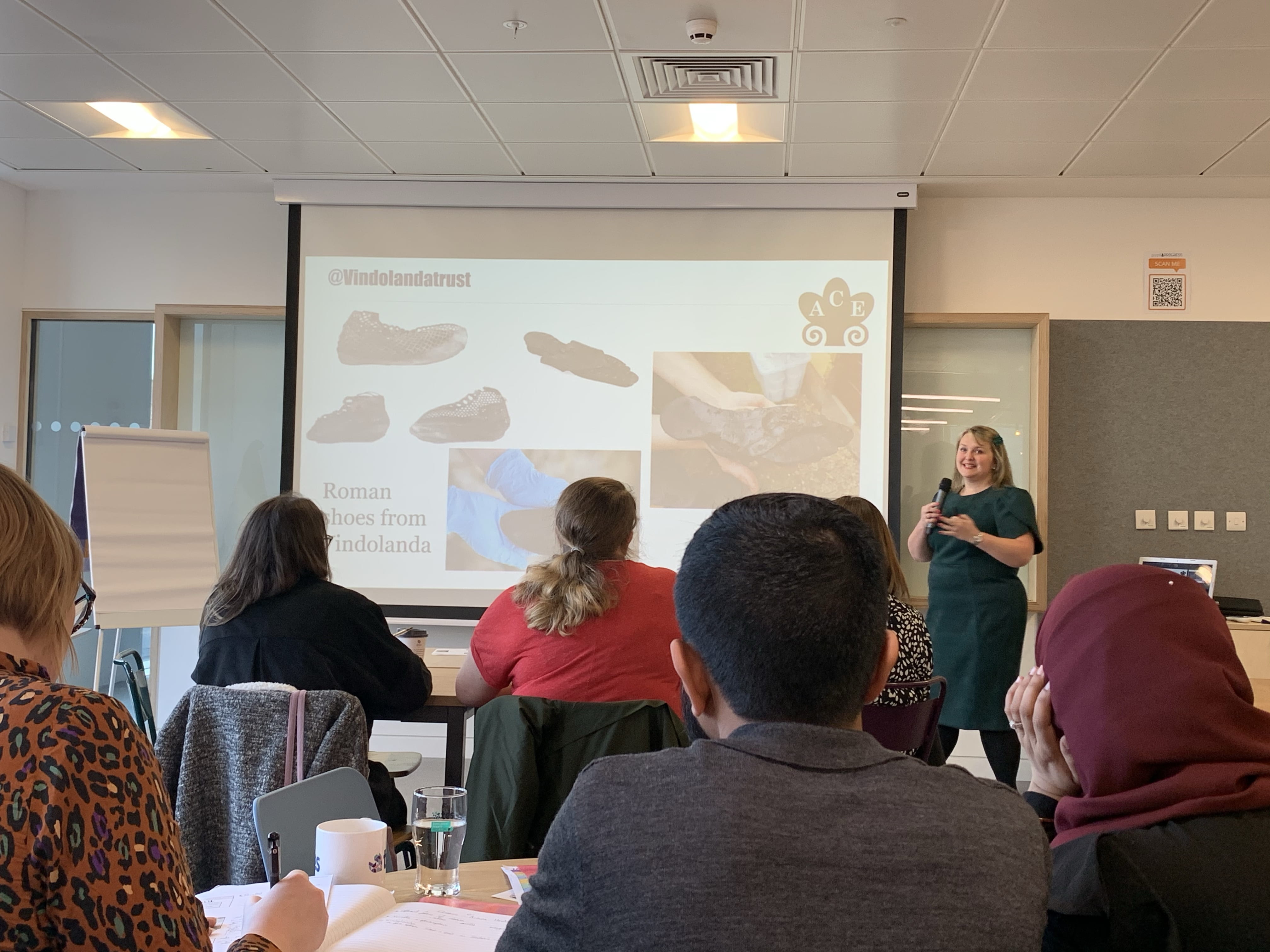
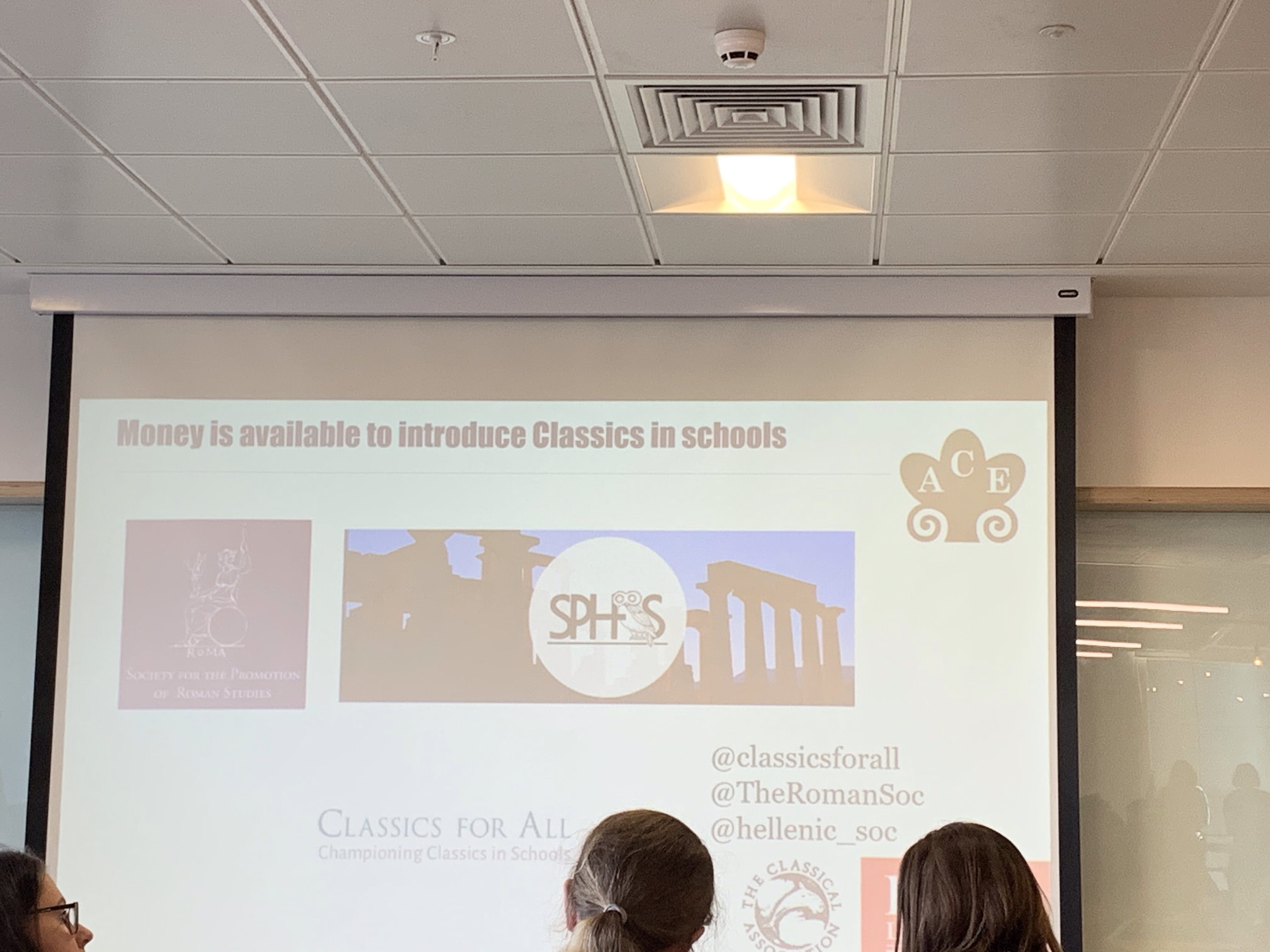
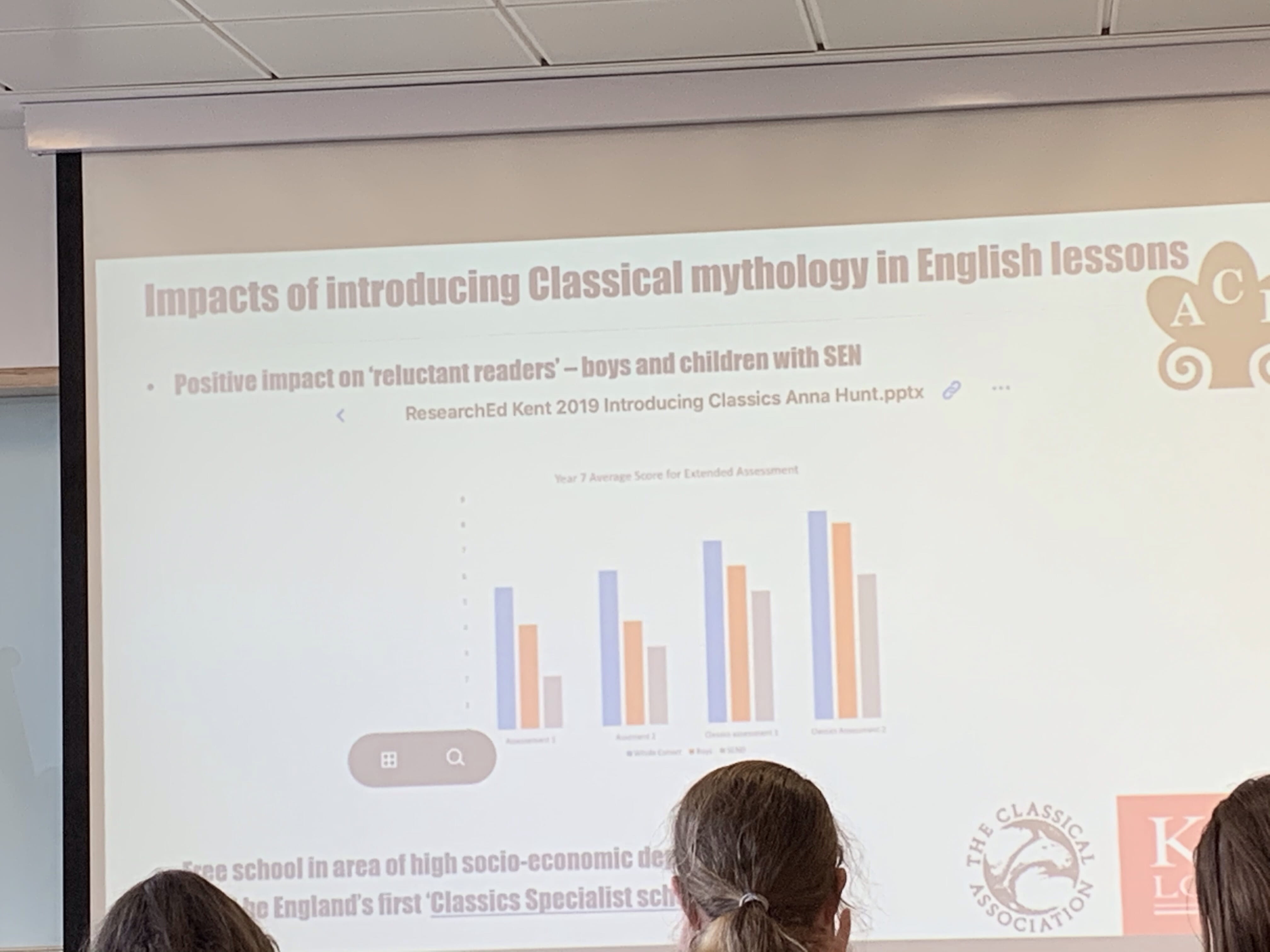
Next up was the first Teachmeet element of the day. It was really useful to have the shorter presentations interspersed with the larger keynotes, and Samantha Duffy’s presentation on helping pupils to ‘Find their Voice’ was an interesting look at assured academic writing. Her golden rule of being ‘precise and concise’ explored overview statements and sequencing writing using strong topic sentences to provide a conceptual response. Again there were lots of takeaways from this, really useful exercises that could be taken straight back in to the classroom.
Helan Trisorio followed, sharing her work on recall in her curriculum which had been inspired by Tom Sherrington’s book ‘Principles of Instruction’. It was useful to hear about how the development of recall booklets had been used to enhance confidence and support revision, building and developing knowledge. She had seen some impressive results and made some interesting points about resilience which was another takeaway.
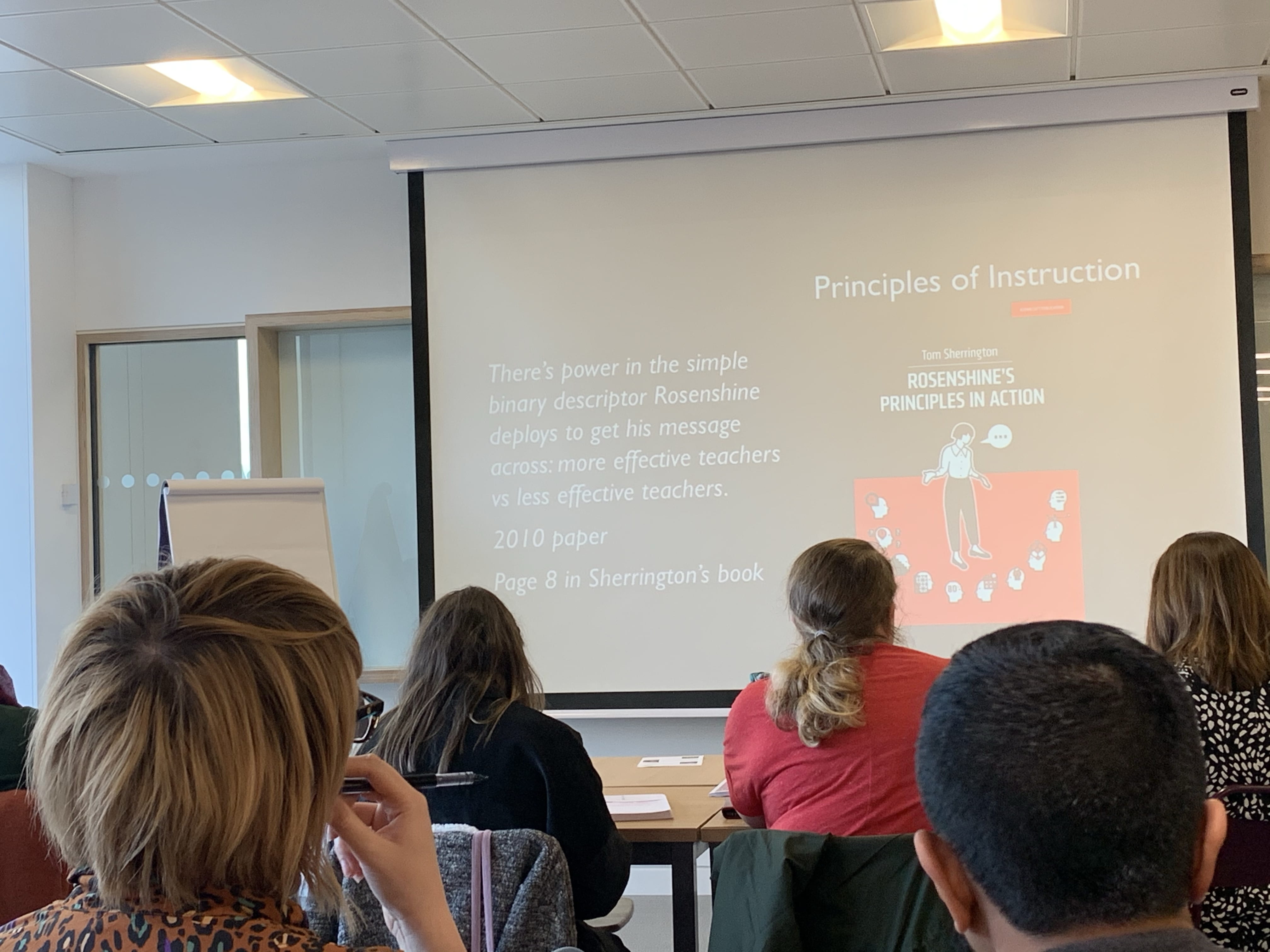
By this point I was already planning a number of projects in my head and it was time for a tea break and a chance to chat to some new friends. We took pictures, I won a teapot (thanks @tes) and had the opportunity to discuss and reflect on the ideas so far.
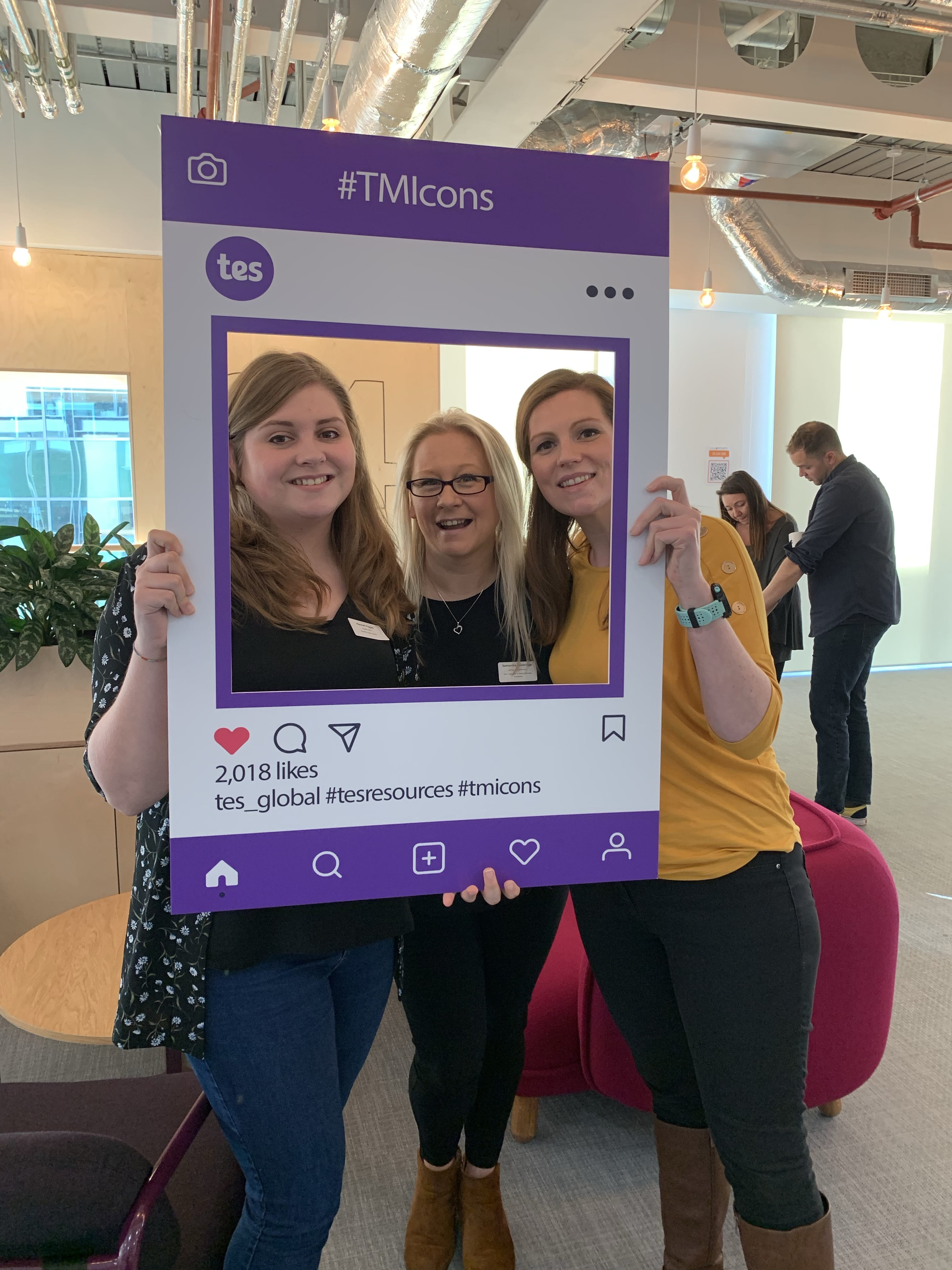

After the break, it was time for Jennifer Webb @funkypedagogy which I had been really looking forward to, but I’ll cover that in part two.